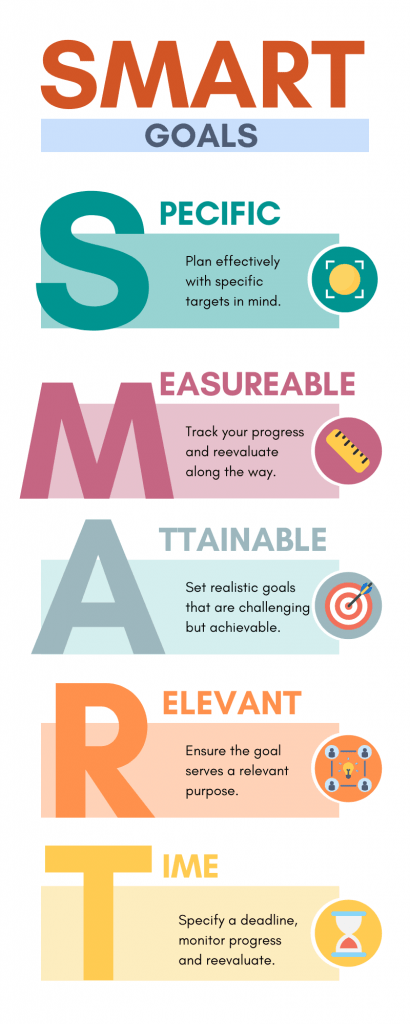Effective Strategies for Goal Setting
Have you ever wondered how successful people achieve their goals in a systematic and efficient way? Setting goals is a powerful tool that can help you turn your dreams into reality. In this article, we will explore effective strategies for goal setting that will help you stay focused, motivated, and on track towards achieving your aspirations.
Importance of Goal Setting
Setting clear and specific goals is crucial for success in both personal and professional life. When you have well-defined goals, you are more likely to stay focused, motivated, and determined to achieve them. Goals give you a sense of purpose and direction, guiding your actions and decisions towards positive outcomes.
Goal setting also helps you prioritize your tasks, manage your time effectively, and measure your progress. By setting achievable and realistic goals, you can track your success, make adjustments, and stay on course towards achieving your ultimate objectives.
Benefits of Effective Goal Setting
The benefits of setting effective goals are numerous and far-reaching. Here are some key advantages of incorporating goal setting into your daily routine:
- Increased Motivation: Having clear goals gives you a sense of purpose and motivation to keep moving forward, even when faced with challenges.
- Improved Focus: Goals help you prioritize tasks and activities, allowing you to concentrate your efforts on what truly matters.
- Enhanced Performance: Setting goals pushes you to strive for excellence and achieve higher levels of success in all areas of your life.
- Better Time Management: Goals help you allocate your time and energy efficiently, avoiding distractions and unnecessary activities.
- Greater Satisfaction: Achieving your goals brings a sense of accomplishment, fulfillment, and satisfaction, boosting your confidence and self-esteem.

SMART Goals
One of the most effective strategies for goal setting is to create SMART goals. SMART is an acronym that stands for Specific, Measurable, Achievable, Relevant, and Time-Bound. By following the SMART criteria, you can set goals that are clear, actionable, and attainable. Let’s break down each component of SMART goals:
- Specific: Define your goal in clear and specific terms. Be precise about what you want to achieve, why it is important, and how you plan to accomplish it.
- Measurable: Set measurable criteria to track your progress towards achieving your goal. Identify key metrics, milestones, or indicators that will show your success.
- Achievable: Ensure that your goal is realistic and attainable within your current resources, skills, and timeframe. Set challenging but reachable objectives.
- Relevant: Align your goal with your values, priorities, and long-term aspirations. Make sure it is meaningful and relevant to your personal or professional growth.
- Time-Bound: Establish a deadline or timeline for achieving your goal. Set specific dates or milestones to track your progress and stay on schedule.
Goal Setting Techniques
There are several goal setting techniques that can help you clarify your objectives, stay motivated, and increase your chances of success. Here are some popular methods to consider:
1. Visualization
Visualization is a powerful technique that involves mentally picturing yourself achieving your goals. By creating vivid images of your desired outcomes in your mind, you can increase your motivation, focus, and confidence. Visualize the steps you need to take, the obstacles you may encounter, and the rewards you will reap upon reaching your goals.
2. Action Planning
Action planning is a strategic approach to goal setting that involves breaking down your goals into manageable tasks and creating a step-by-step plan to achieve them. Develop a detailed action plan with specific deadlines, milestones, and action steps to keep you on track and accountable.
3. Accountability Partners
Having an accountability partner or mentor can significantly increase your chances of achieving your goals. Choose someone who can support, motivate, and challenge you to stay committed to your objectives. Share your goals, progress, and setbacks with them regularly, and seek their feedback and guidance.
4. Rewards and Incentives
Rewarding yourself for achieving milestones and goals can boost your motivation, morale, and productivity. Celebrate your successes, no matter how small, and treat yourself to meaningful rewards or incentives as a way to stay motivated and focused on your progress.
5. Daily Habits and Routines
Incorporating goal-related habits and routines into your daily life can help you stay consistent, disciplined, and focused on your objectives. Establish healthy, productive, and positive habits that align with your goals, and make them a regular part of your routine for long-term success.

Goal Setting Worksheet
To help you get started on setting and achieving your goals, here is a simple goal setting worksheet that you can use as a guide. Fill in the following information for each goal you want to pursue:
| Goal Description | Specific: | Measurable: | Achievable: | Relevant: | Time-Bound: |
|---|---|---|---|---|---|
| Weight Loss | Lose 10 pounds | Track calories | Realistic plan | Health goals | 2 months |
| Career Growth | Get a promotion | Performance reviews | Skill development | Professional goals | 6 months |
| Financial Freedom | Save $5,000 | Budget tracking | Savings plan | Financial goals | 1 year |
Feel free to customize this worksheet with your own goals, criteria, and timelines. Use it as a tool to clarify your objectives, stay organized, and track your progress towards achieving your goals.
Monitoring and Adjusting Goals
Setting goals is just the first step towards success; monitoring and adjusting your goals is equally important. Regularly review your progress, assess your performance, and make necessary changes to your goals as needed. Here are some tips for monitoring and adjusting your goals effectively:
-
Track Your Progress: Keep a record of your daily, weekly, or monthly progress towards your goals. Use a journal, planner, or digital tracking tool to monitor your performance and stay accountable.
-
Measure Your Results: Compare your actual achievements with your initial goals to assess your progress. Identify areas of improvement, setbacks, or obstacles that may require adjustments to your action plan.
-
Seek Feedback: Ask for feedback from trusted colleagues, mentors, or friends who can provide valuable insights and perspectives on your goals. Listen to their advice, suggestions, and recommendations for improvement.
-
Stay Flexible: Be open to change, adaptability, and flexibility when it comes to your goals. Life is unpredictable, and circumstances may change, requiring you to revise your goals, timelines, or strategies accordingly.
-
Celebrate Successes: Acknowledge and celebrate your accomplishments, no matter how small. Recognize your hard work, dedication, and perseverance, and reward yourself for achieving your milestones and goals.

Conclusion
In conclusion, goal setting is a powerful tool that can help you achieve your dreams, aspirations, and ambitions. By implementing effective strategies for goal setting, such as creating SMART goals, utilizing visualization techniques, developing action plans, and seeking accountability, you can increase your motivation, focus, and success in all areas of your life.
Remember to set clear, specific, and achievable goals that are aligned with your values, priorities, and long-term vision. Monitor your progress, adjust your goals as needed, and celebrate your successes along the way. With dedication, perseverance, and commitment, you can turn your goals into reality and reach new heights of personal and professional achievement. Good luck on your goal-setting journey!
